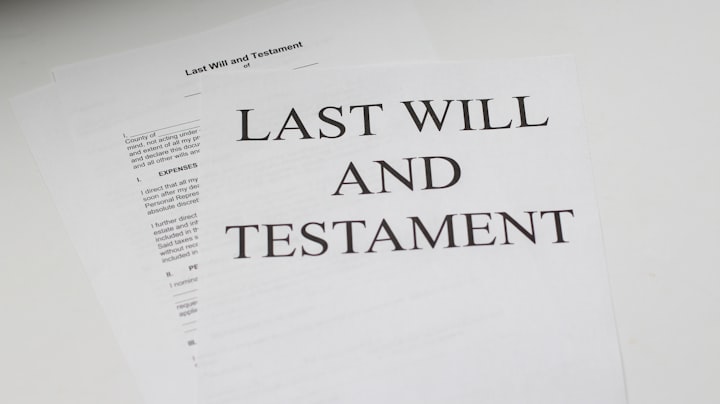Contesting a Will - When & How It's Done
When somebody passes they often leave a will outlining what they wish to happen with their estate, however it is possible to contest a will under the right circumstances.

There is only one reason to contest a will. This is that you have grounds to believe that it does not accurately reflect the wishes of the deceased. Contesting a will can, however, be financially and emotionally draining. You should therefore only do so if you are certain it is the best course of action.
To explain further, Nannette Kendrick, Head of New Business and Marketing at Lovedays Solicitors, shares her insight into the laws around contesting a will.
The basics of a valid will
A will has to be properly executed to be valid. This means that it must fulfil three conditions.
- It must be written.
- It must be signed either by the testator or by someone else acting under their direction and in their presence.
- It must be clearly intended to be valid.
As long as a will meets these conditions, it is considered to be valid unless proven otherwise. To prove that a will is invalid, you must demonstrate at least one of the following.
- The deceased did not have the required mental capacity
- The deceased did not properly understand and approve the content of the will
- Undue influence
- Forgery and fraud
There is a need for rectification (essentially, there was a clerical error).
There is a further ground for contesting a will. This is “Reasonable financial provision”. In this situation, you are essentially contesting the fairness of a will rather than its validity.
It is, however, important to understand that the law presumes that a person can dispose of their property as they please. This means that you would need to make a very strong case as to why you were entitled to more than your allocated share (if any).
Timeline for contesting a will
Currently, if you are challenging the validity of a will, you must do so within six months from the issue of the grant of probate. If you are a beneficiary making a claim against the will, you must do so within 12 years from the date of death. At present, there is no time limit for contesting a will on the basis of forgery and/or fraud.
If you are making a claim for maintenance, you must do so within six months from the issue of the grant of probate.
It is, however, important to note that these are limits, not targets. If you’re set on making a claim then it’s strongly advisable to do so as soon as possible. This is often particularly important when contesting a will.
Unless you have some form of documentary proof that backs up your claim 100%, you will need to rely on witness testimony. People’s recollections often fade with time. Even if they remain fully confident in them an opposing lawyer may successfully cast doubt on them. People may become difficult or impossible to trace. They may die.
Even without all that, the simple fact remains that if you leave a claim too long, you may be unable to enforce any judgement you receive.
How to contest a will
If possible, you should lodge a “caveat” against a will. Assuming this is granted, probate will be halted until the issue is resolved. Ideally, the next step is to resolve the dispute through negotiation and agreement. Mediation could be useful here. It is often more economical than going straight to lawyers let alone courts.
If you cannot reach a negotiated settlement, then your last option is to go to court. Be aware, however, that this can be extremely expensive, particularly if you lose. Also, be aware that winning may not necessarily make you any better off.
In other words, the court may agree that a will is invalid but still not give you the settlement you wanted. They might even choose to make you liable for the other party’s costs. Contesting a will is, therefore, very much a situation in which you should pick your battles with great care.
About the Creator
Nannette Kendrick
Nannette Kendrick is the Head of New Business and Marketing at Lovedays Solicitors who specialise in Family Law, divorce and property services such as conveyancing.






Comments
There are no comments for this story
Be the first to respond and start the conversation.